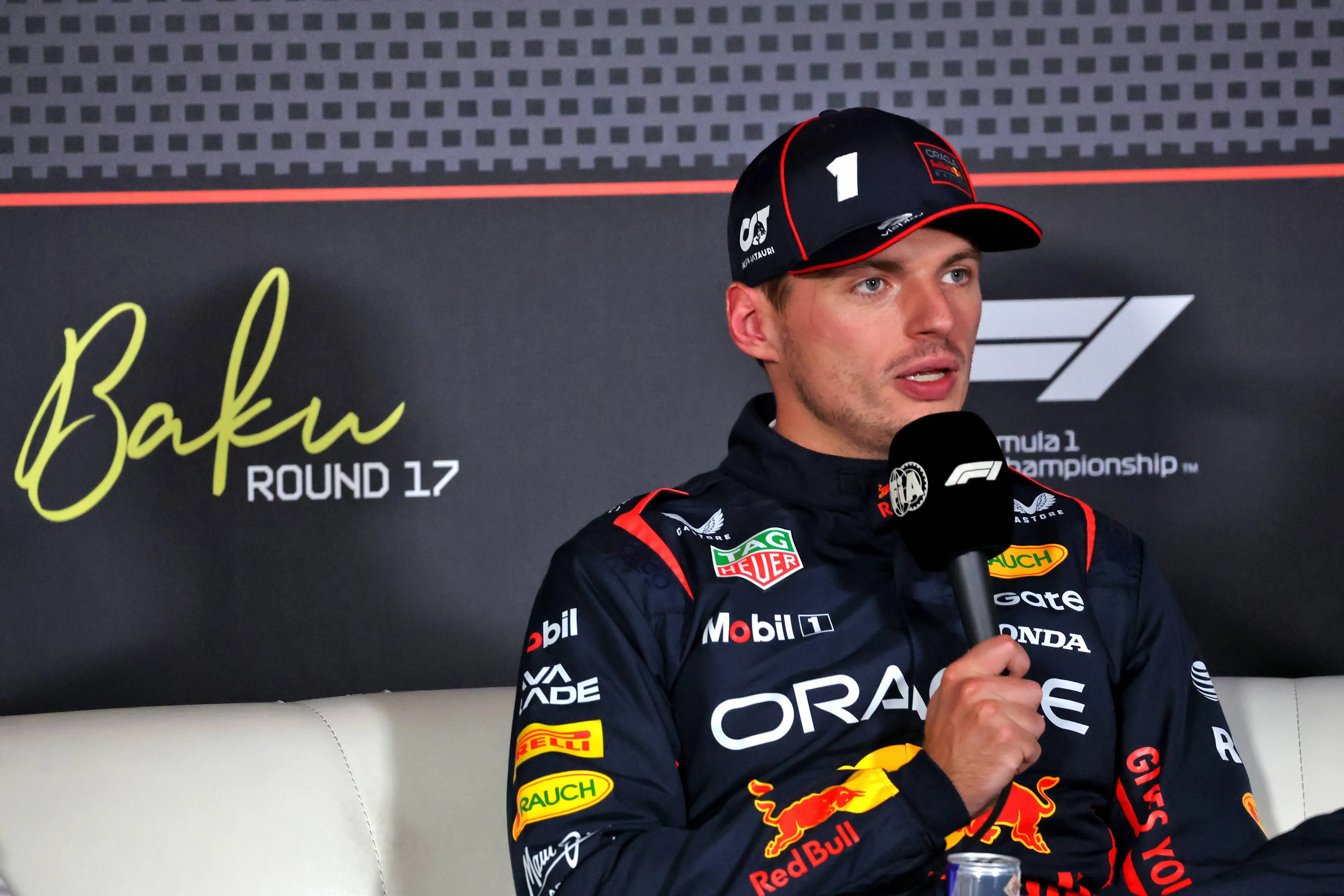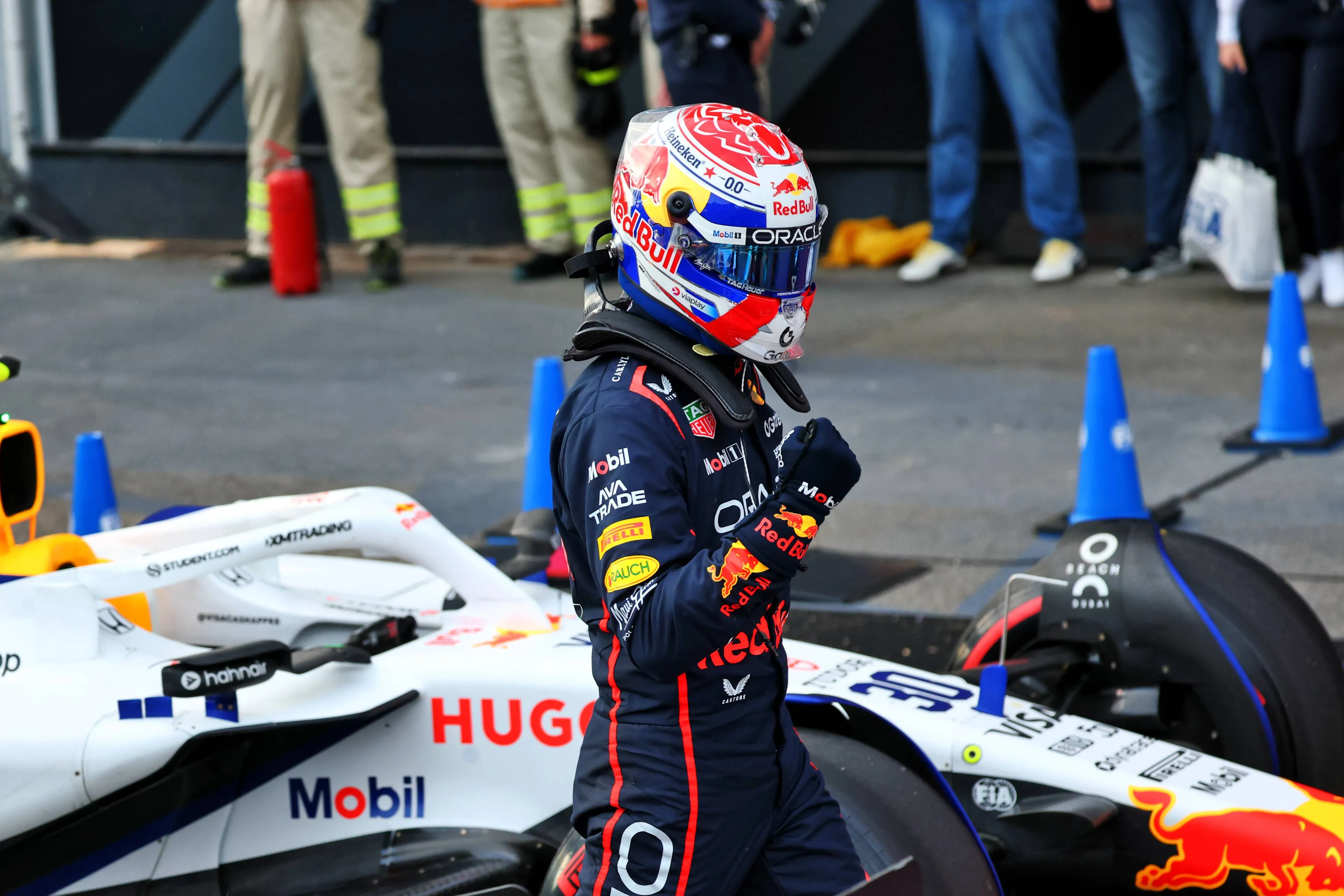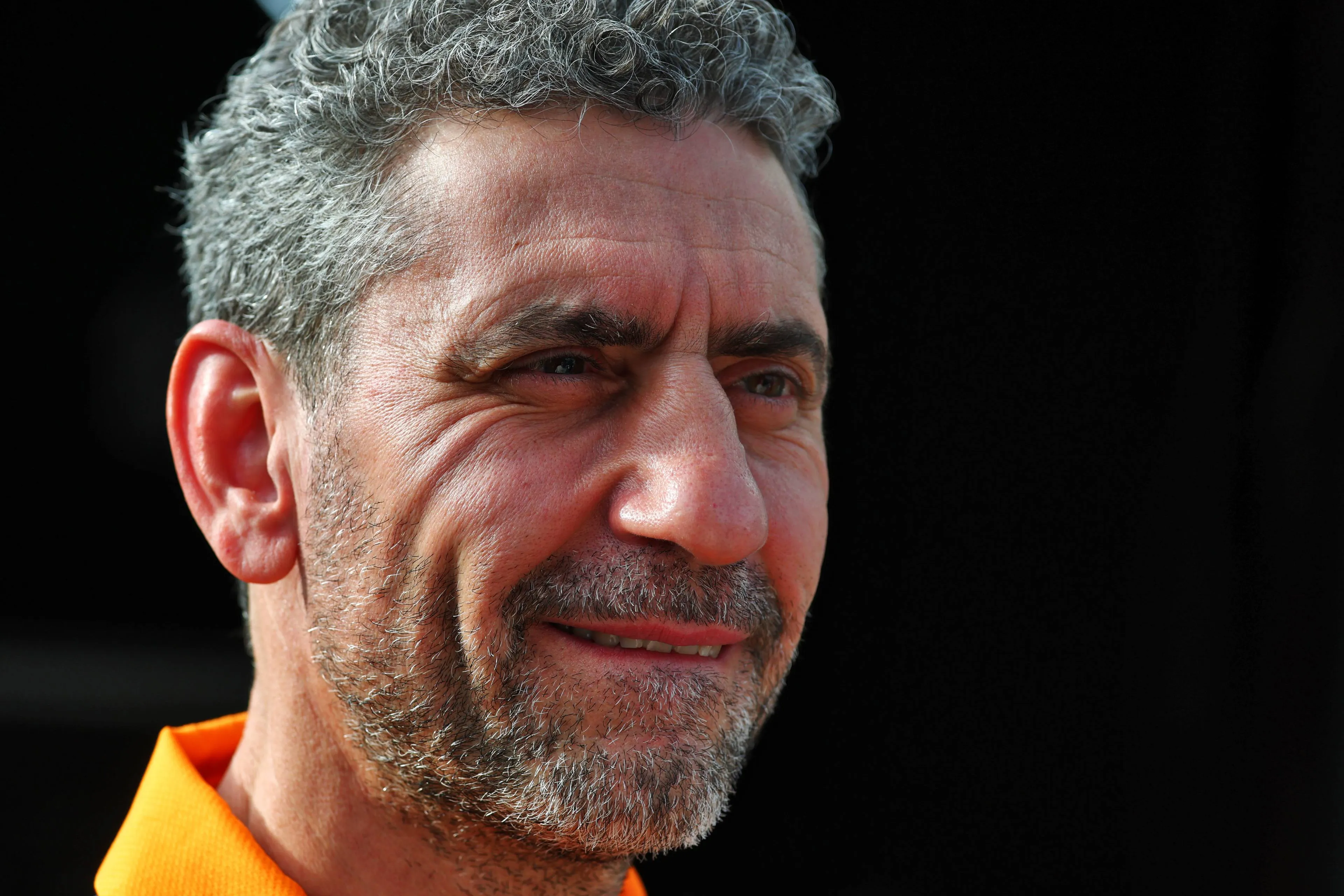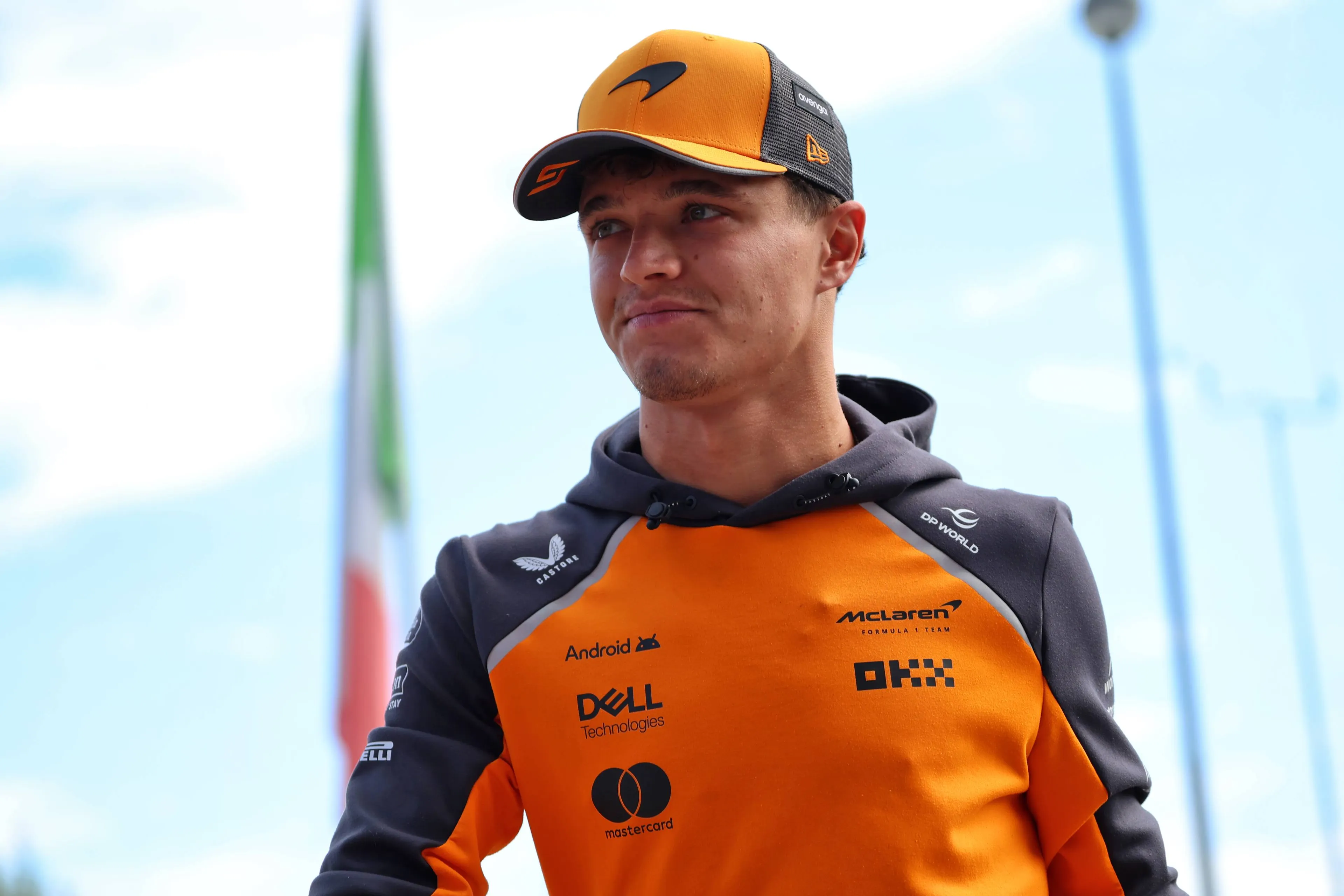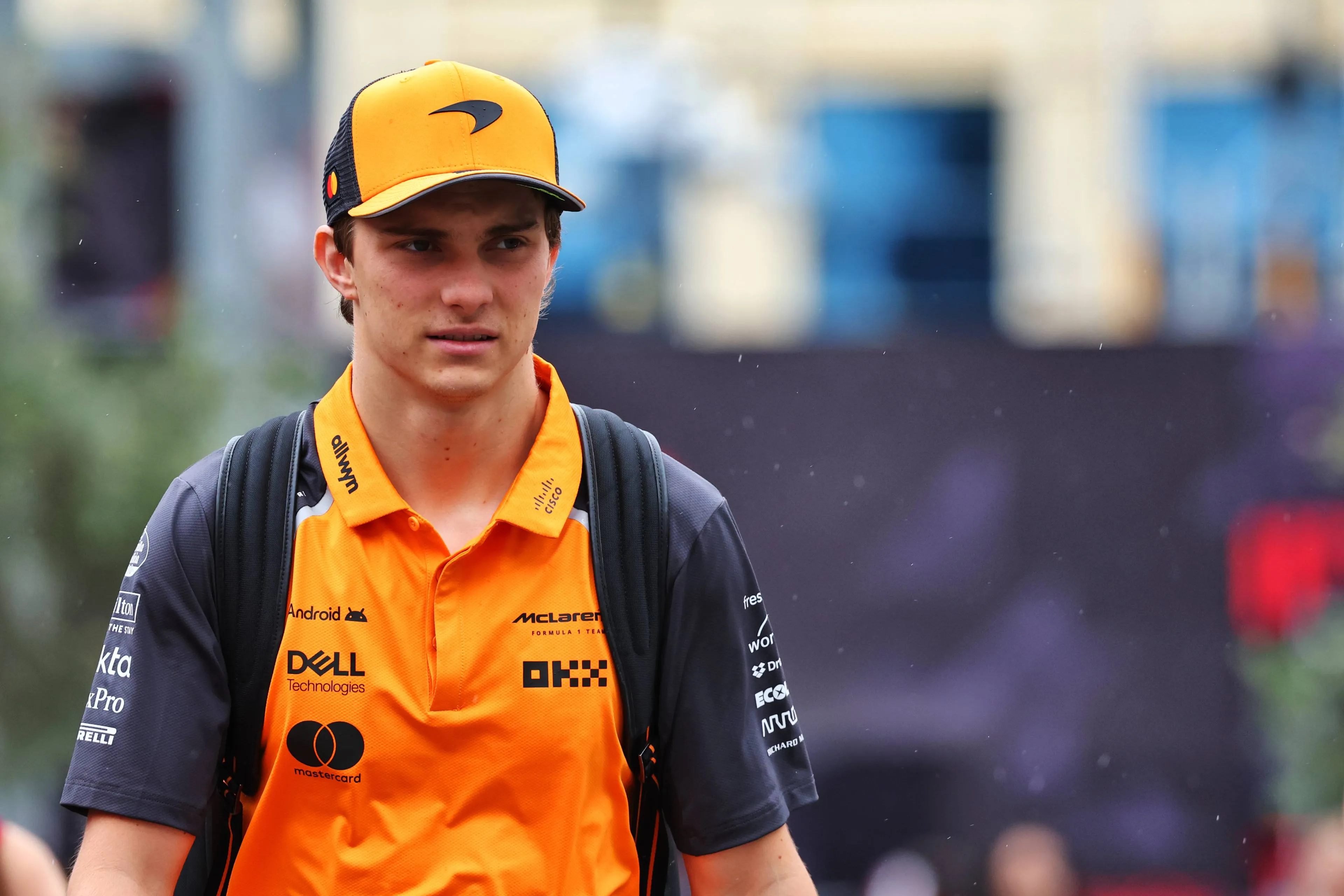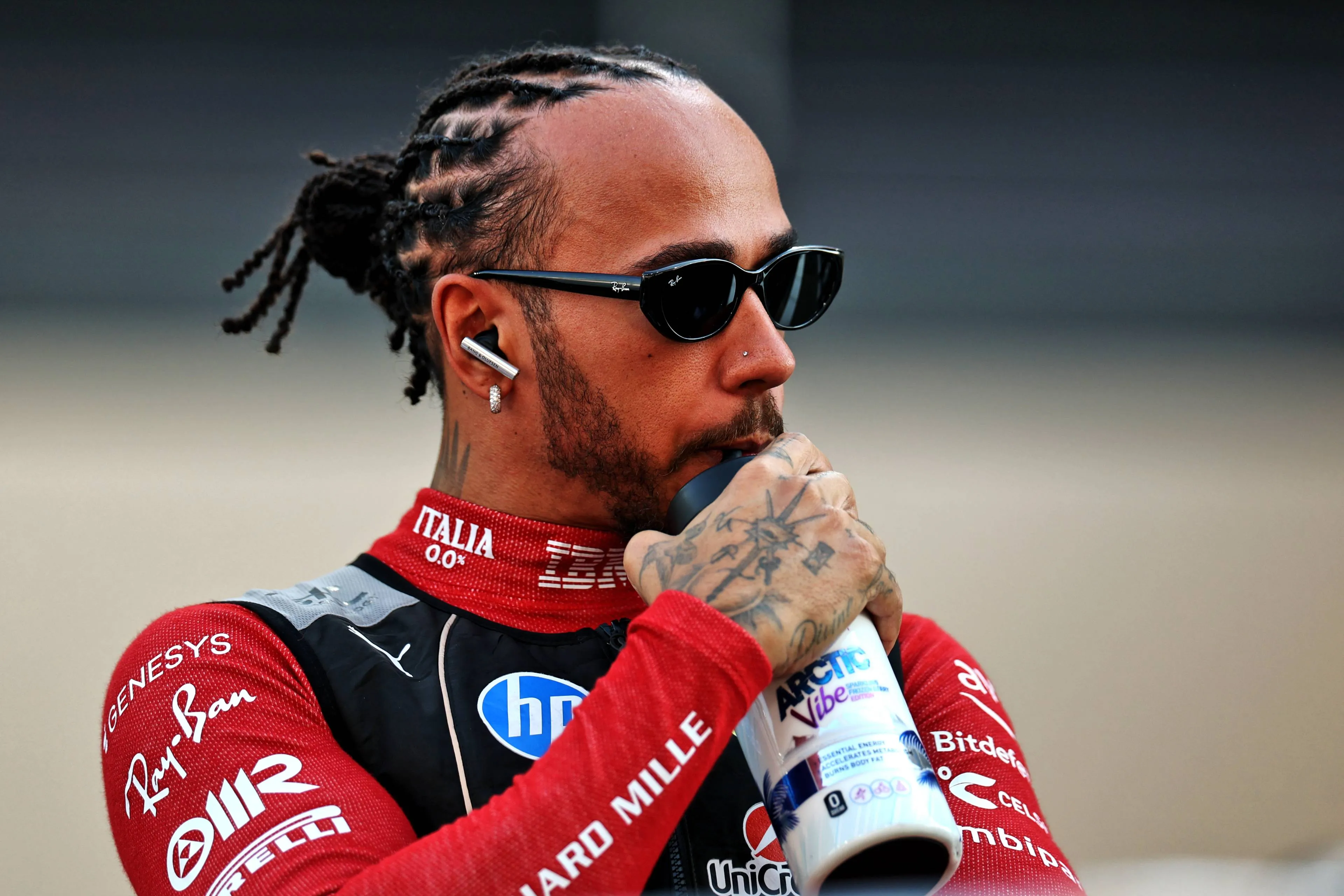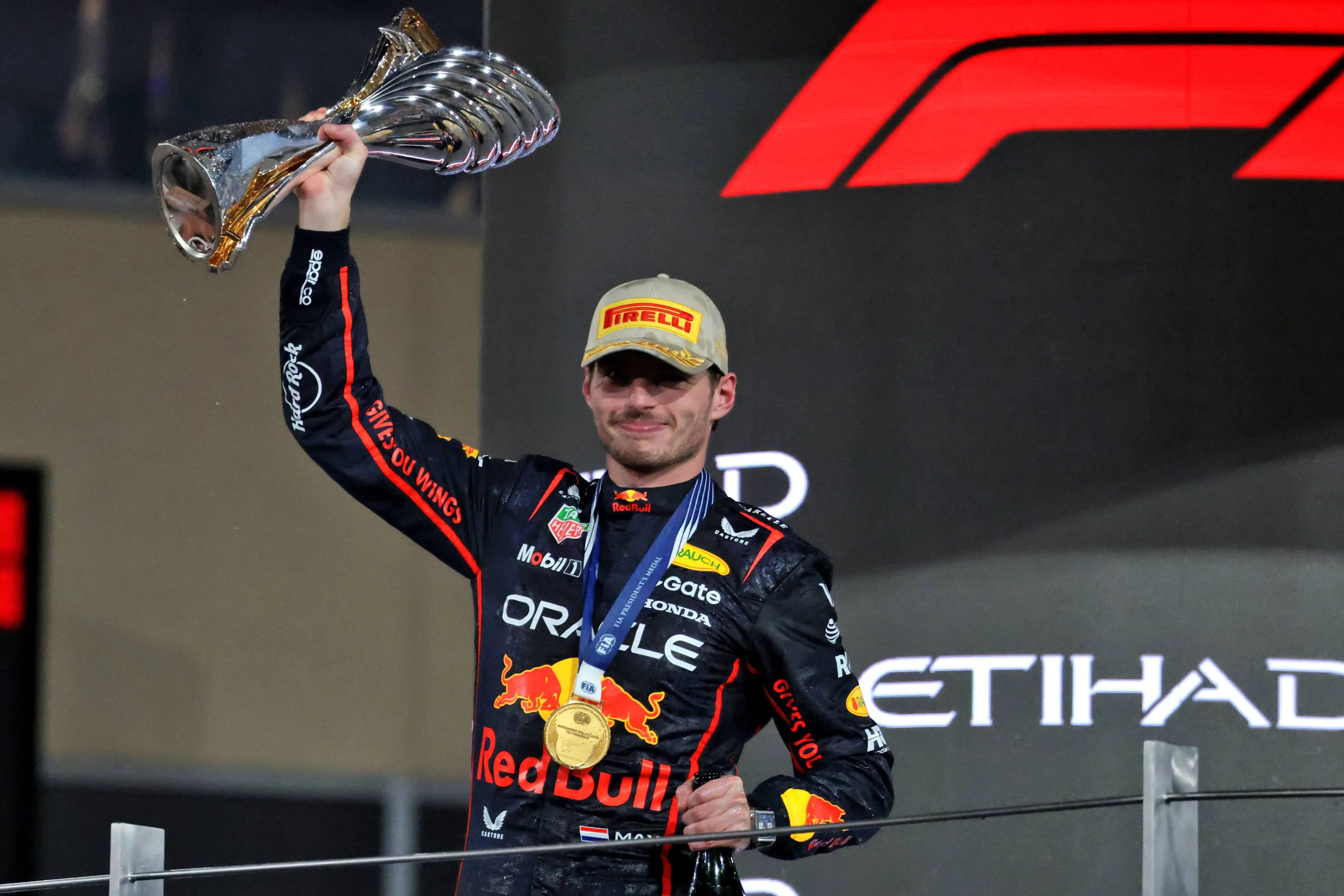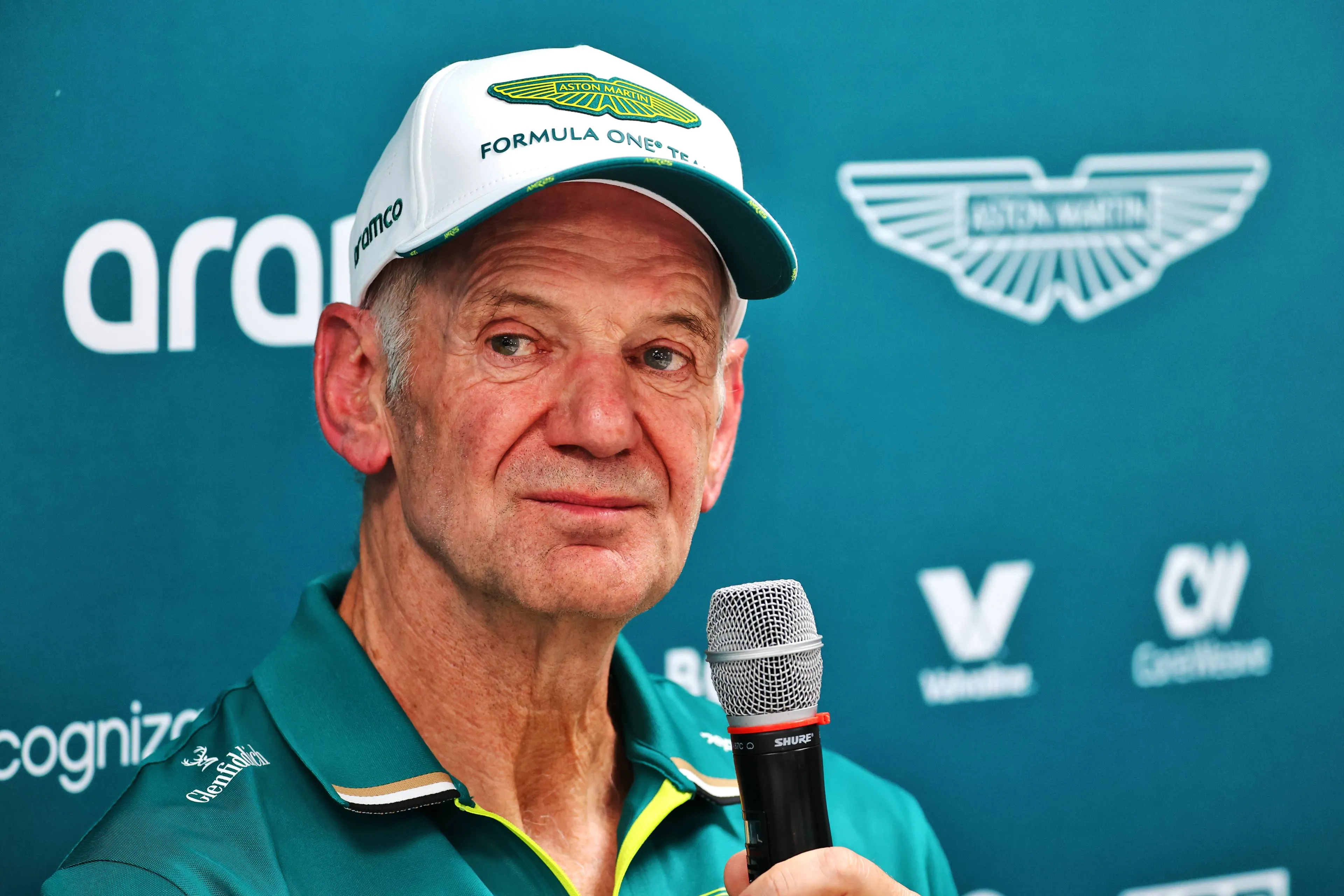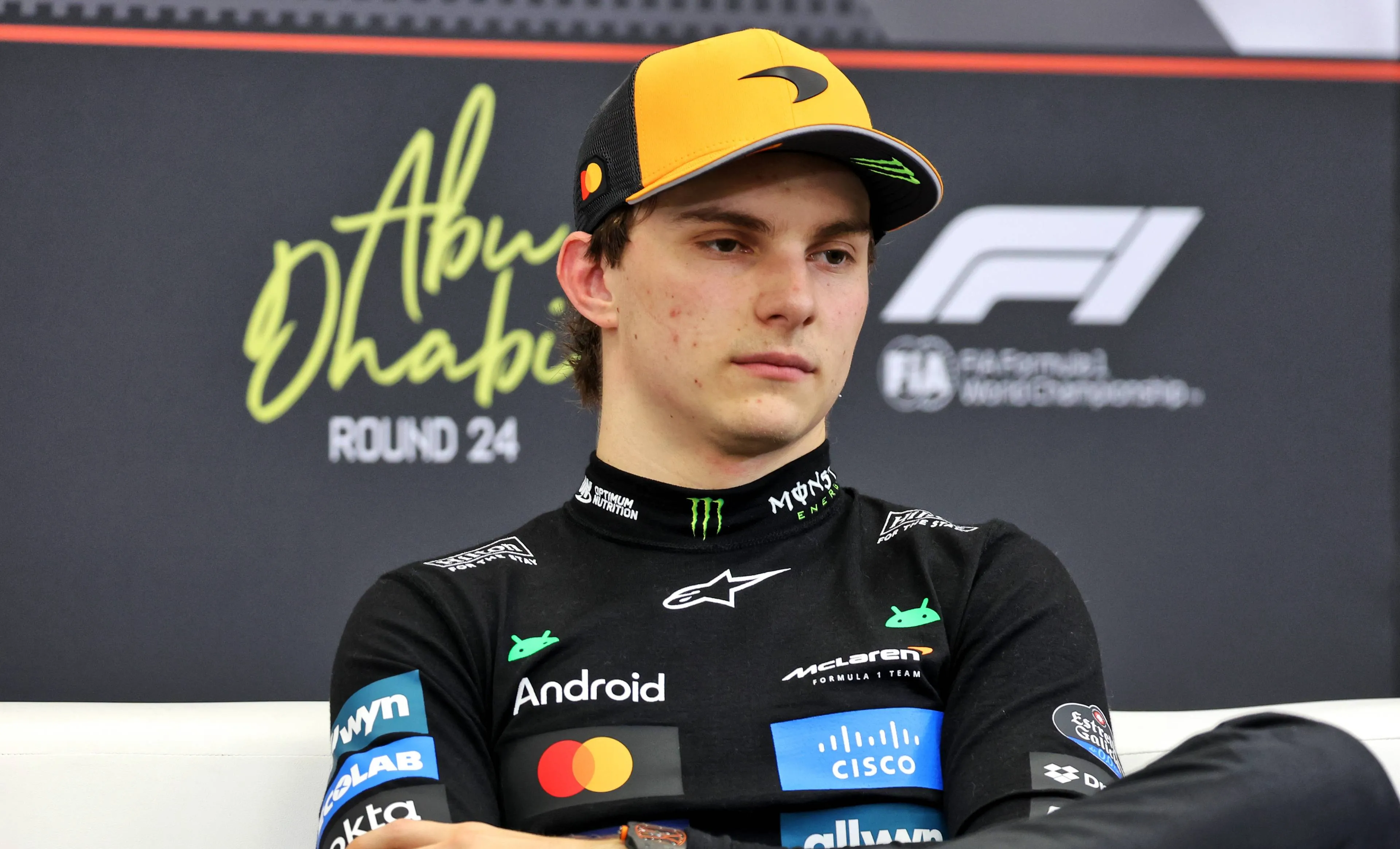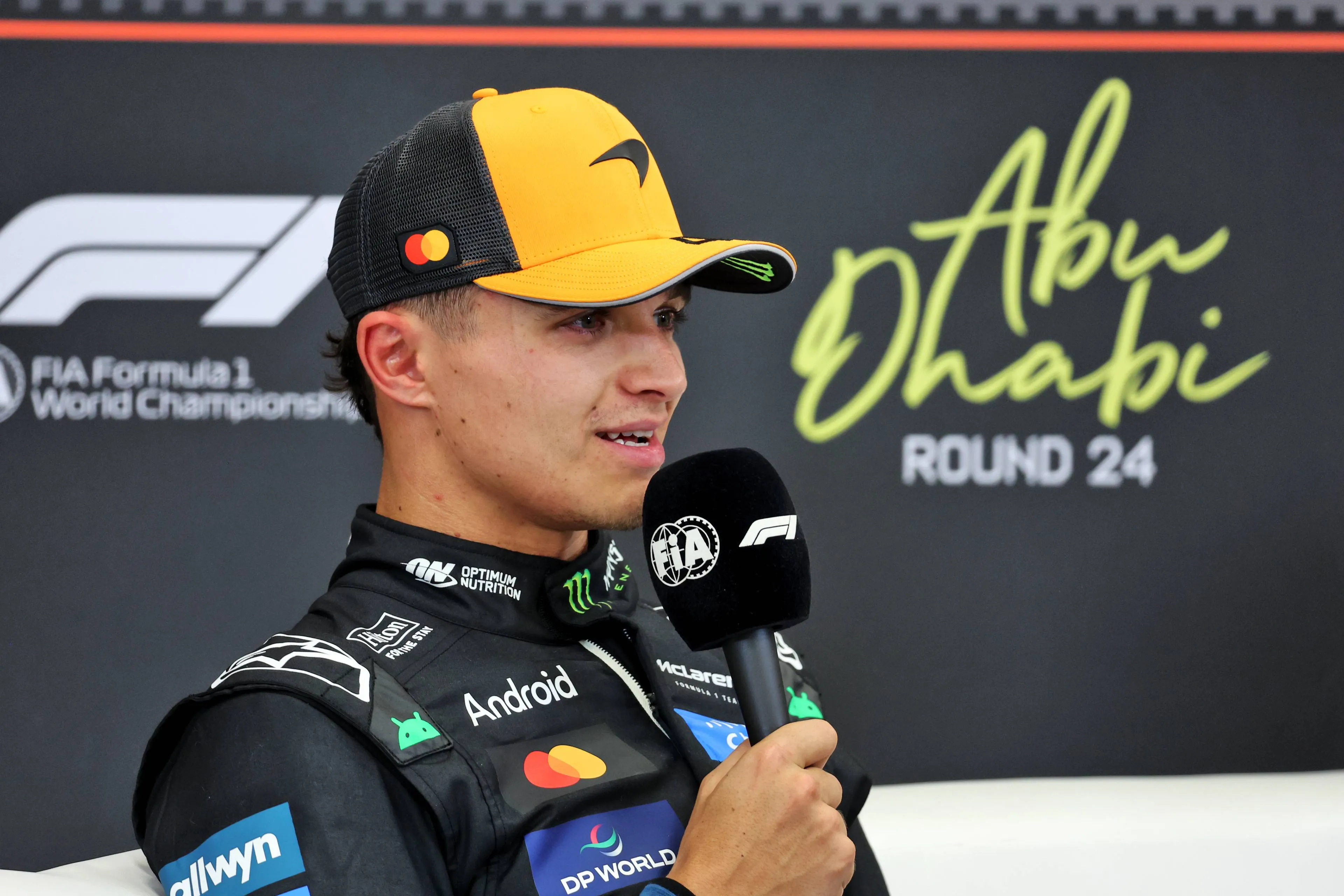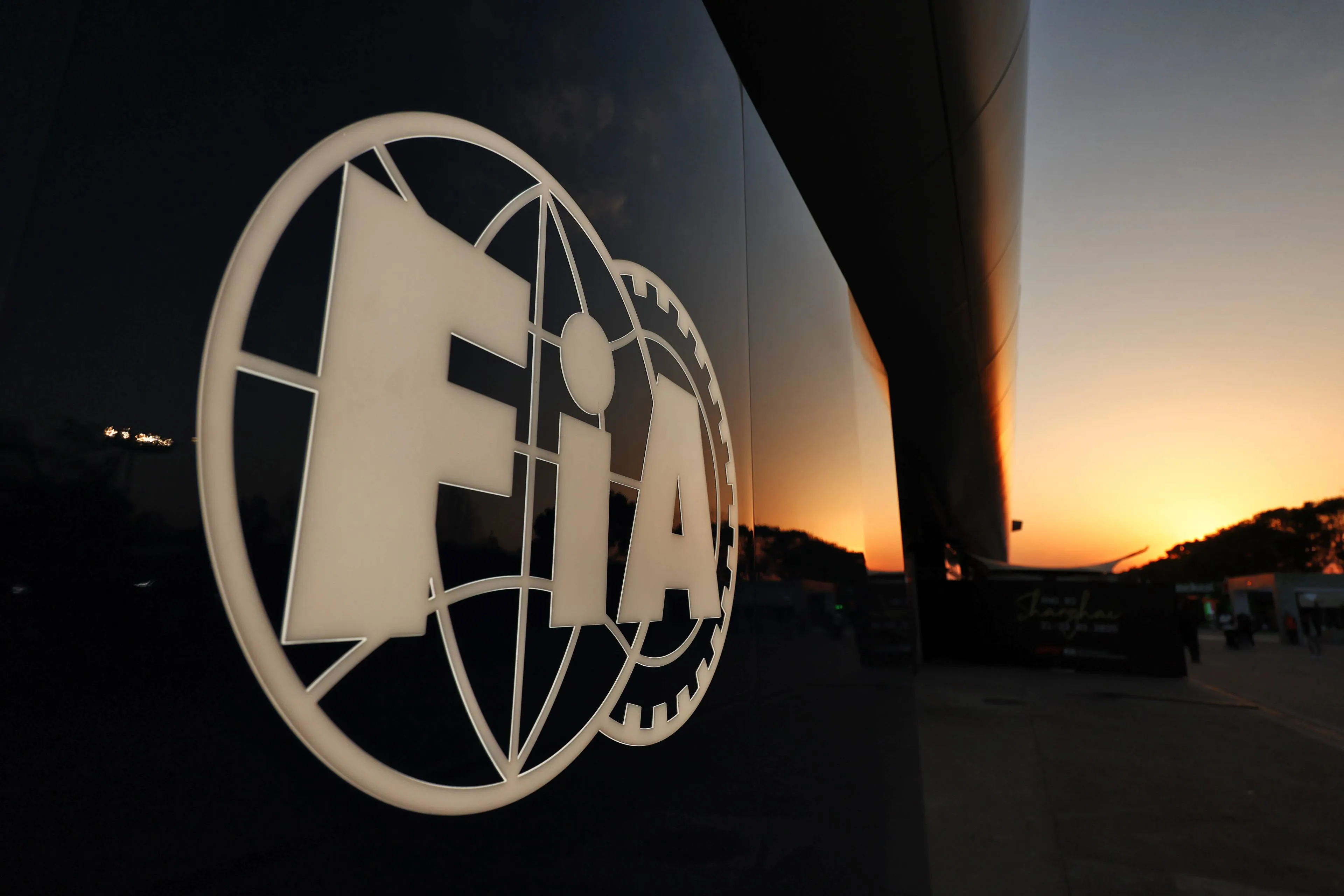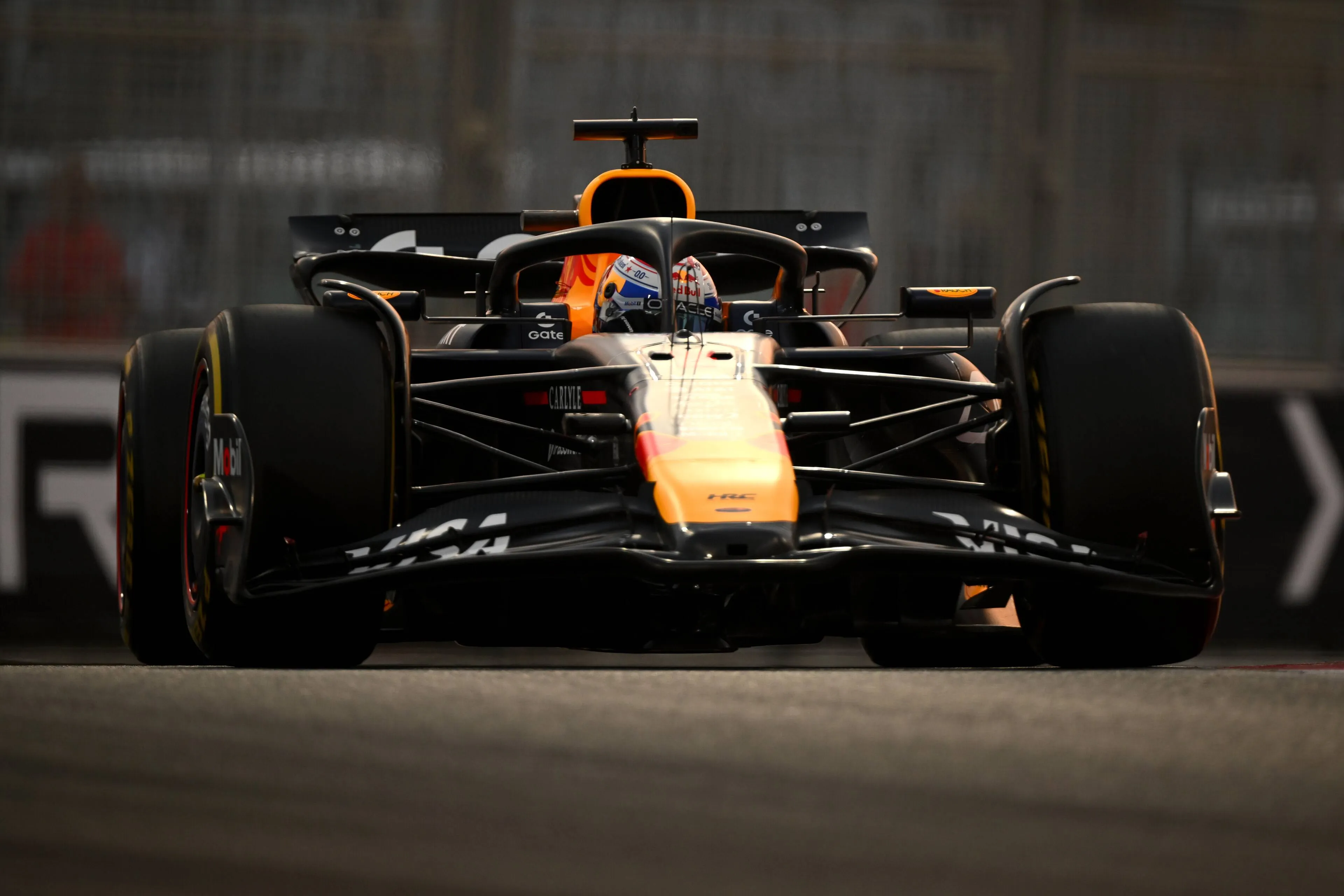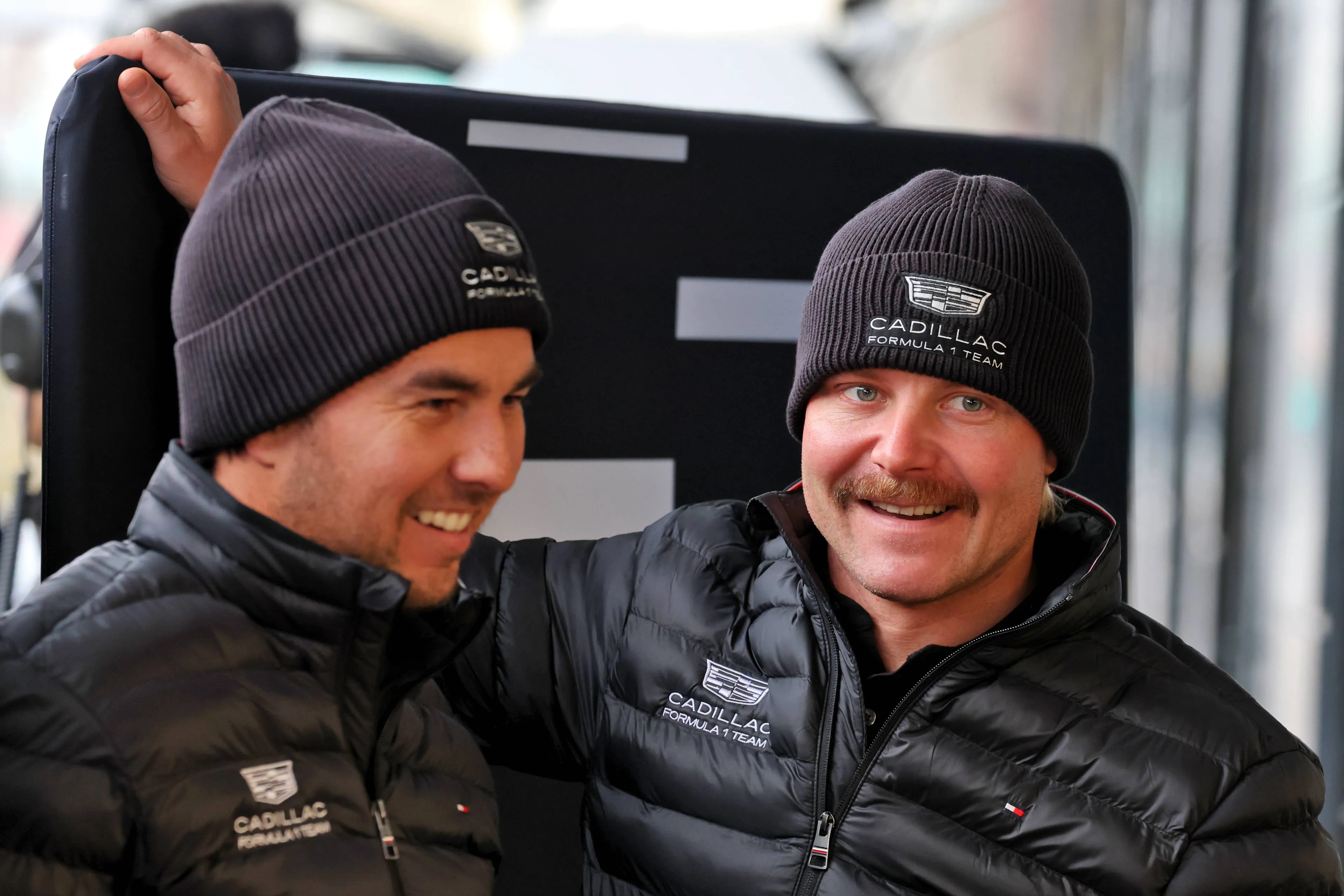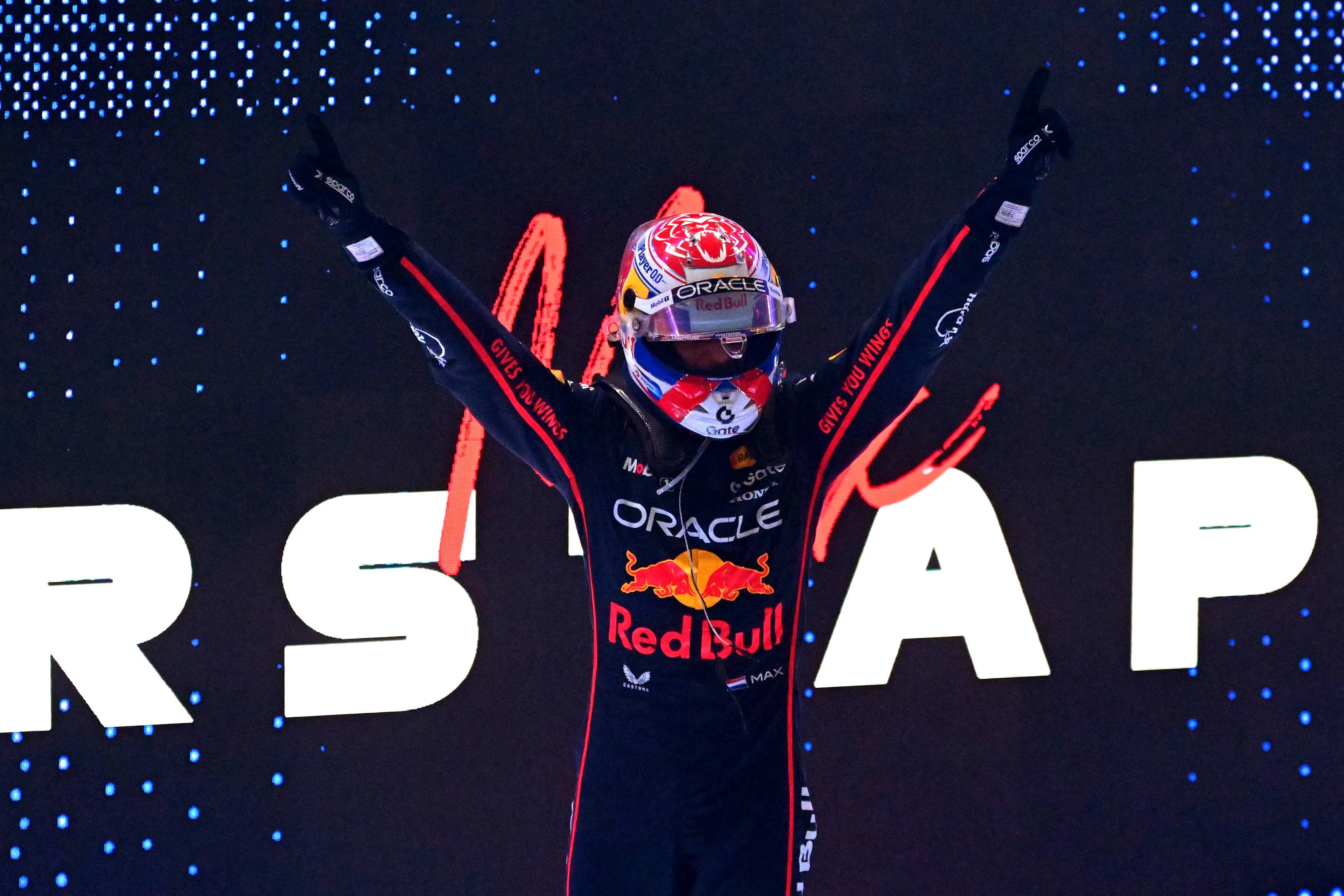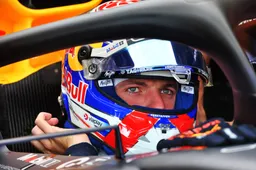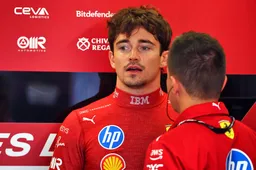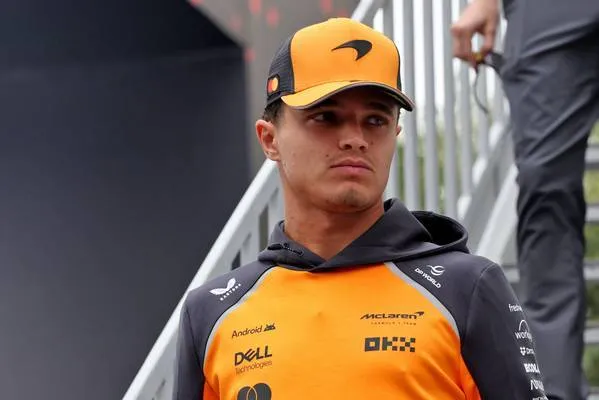
Lando Norris in Baku - Photo: Race Pictures
Lando Norris turns setback into strength with new mental approach
20:47, 20 Sep 2025
0 Comments
Lando Norris’s response to a frustrating qualifying session at the Azerbaijan Grand Prix revealed more than just his disappointment - it hinted at a new psychological approach that could prove vital in his pursuit of the F1 title.
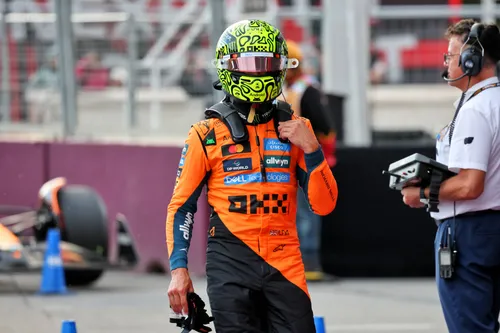
Lando Norris failed to capitalise on his teammate's crash in qualifying in Baku. Photo: RacePictures
The opportunity is there every single weekend to be on pole. I try and do that every weekend, and today I struggled more because of not making the best decision.- Lando Norris.
The McLaren driver arrived in Baku knowing the situation in the championship. His teammate and current leader Oscar Piastri had built a commanding 31-point advantage, and with the title fight tightening, every opportunity to claw back ground mattered.
So when Piastri crashed out during the late stages of qualifying, it opened the door for Norris to take full advantage and put himself on the front foot by taking pole.
Instead, Norris struggled with the slippery surface and timing of his laps and could only qualify seventh, while Piastri, despite his crash, will start just two places behind in ninth. On paper, it was a missed chance and the sort of setback that could eat away at a driver’s confidence.
So when Piastri crashed out during the late stages of qualifying, it opened the door for Norris to take full advantage and put himself on the front foot by taking pole.
Instead, Norris struggled with the slippery surface and timing of his laps and could only qualify seventh, while Piastri, despite his crash, will start just two places behind in ninth. On paper, it was a missed chance and the sort of setback that could eat away at a driver’s confidence.
A different Norris
In previous seasons, Norris has been candid, sometimes brutally so, about his own performances. He has admitted in the past to being hard on himself, often voicing frustrations immediately after a tough session. But this time, the tone was different.
When asked directly whether failing to seize pole position was a missed opportunity, Norris’s answer was pragmatic, even philosophical.
"No, because I still did everything I could," he said. "If I’d won every race, I could be world champion by now. But I didn’t, you know?
When asked directly whether failing to seize pole position was a missed opportunity, Norris’s answer was pragmatic, even philosophical.
"No, because I still did everything I could," he said. "If I’d won every race, I could be world champion by now. But I didn’t, you know?
"I went out first and it was just the wrong decision to make in the end. If everyone else got a yellow [flag] behind because someone else went off behind me, you wouldn’t be asking me this question. Sometimes it goes your way around here, sometimes it doesn’t.
"It’s something we’ll learn from, but the opportunity is there every single weekend to be on pole. I try and do that every weekend, and today I struggled more because of not making the best decision. But that’s a hindsight thing, not an incorrect one at the time."
There was no sense of panic, no self-criticism that spirals into negativity. Instead, Norris projected composure, acknowledging the mistake, but framing it as part of the unpredictable nature of the sport.
There was no sense of panic, no self-criticism that spirals into negativity. Instead, Norris projected composure, acknowledging the mistake, but framing it as part of the unpredictable nature of the sport.
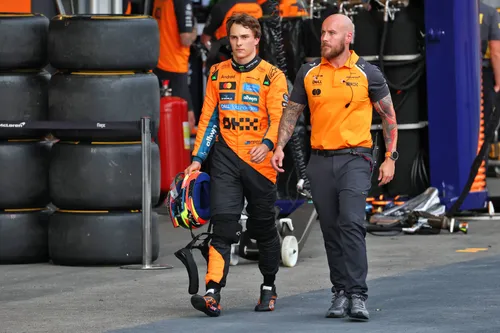
Oscar Piastri crashed during Baku qualifying and will start P9 in the race. Photo: RacePictures.
The Baku factor
It’s important to remember the circuit Norris was dealing with. The streets of Baku are among the most unforgiving on the calendar.
The long straights demand low-downforce setups, while the twisty old-town sector and variable track surface make grip hard to find. Add in the constant threat of yellow flags and red flags, as Piastri’s crash demonstrated, and qualifying becomes a high-risk lottery.
Norris’s measured reaction reflects an understanding of that chaos. Rather than blaming himself for circumstances outside his control, he accepted the volatility of street racing and kept his focus on the bigger picture.
Learning from Piastri?
Interestingly, Norris’s new mental resilience resembles a trait often associated with his teammate. Piastri, who has earned a reputation for unflappable calm under pressure.
His driving style and mentality suggest a driver with the ability to absorb setbacks without letting them fester.
His driving style and mentality suggest a driver with the ability to absorb setbacks without letting them fester.
For Norris, adopting a similar steeliness may be key.
As teammates fighting not just for wins but for the world championship, the psychological duel could be as decisive as what happens on track.
Allowing frustration to dictate performances could open the door for Piastri to extend his advantage. Matching his rival’s composure may give Norris the mental edge he needs.
Allowing frustration to dictate performances could open the door for Piastri to extend his advantage. Matching his rival’s composure may give Norris the mental edge he needs.
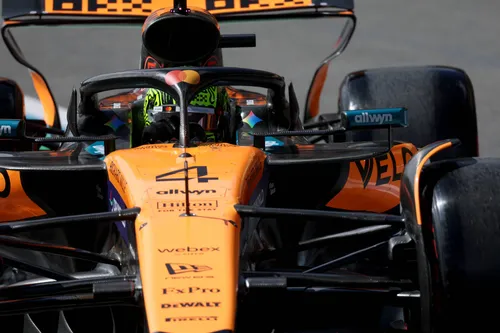
Lando Norris' newfound mental steeliness could be the difference between winning and losing the title. Photo: RacePictures.
Maturity on display
This is not the first time we’ve seen a more mature Norris in 2025. Throughout the season, he has spoken about learning from past mistakes and putting setbacks into context.
The pressure of a championship battle naturally exposes weaknesses, but it also forges resilience.
Compared to earlier in his career when Norris admitted to letting criticism and disappointment weigh on him, this calm acceptance feels like a turning point.
Multiple champions like Lewis Hamilton and Max Verstappen have long emphasised that mindset is as important as machinery in a title fight. Norris, it seems, is beginning to embrace that philosophy.
What it means for the title fight
Of course, words only go so far. Norris must now translate his mental growth into results on track. Seventh on the grid in Baku is not ideal, but it still leaves him ahead of Piastri and with a chance to score meaningful points.
If he can combine this calmer headspace with consistent podium finishes, the 31-point gap could shrink quickly.
More importantly, his attitude suggests he is prepared for the long game.
Championships are never won or lost in a single qualifying session. They are battles of attrition, where the ability to bounce back from setbacks matters just as much as taking advantage of opportunities.
If Norris truly has turned a corner psychologically, McLaren could be set for one of the fiercest intra-team title showdowns in modern Formula 1.
Fans hoping for a championship fight that goes down to the wire may find that Baku, even in disappointment, showed us something important. That Lando Norris might finally have the mental steel to match his undeniable speed.
Fans hoping for a championship fight that goes down to the wire may find that Baku, even in disappointment, showed us something important. That Lando Norris might finally have the mental steel to match his undeniable speed.
GPblog's F1 Today podcast's latest update
Read also
Read more about:
Rumors
Popular on GPBlog
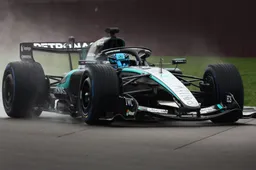
1
All the 2026 F1 liveries revealed: this is how the grid will look this season
3653 times read

2
Verstappen reveals the great love he had to give up for Formula 1
1126 times read
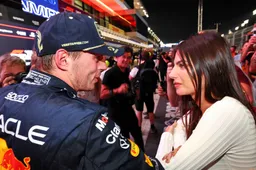
3
Verstappen's girlfriend Kelly Piquet shows off a revealing outfit
1111 times read
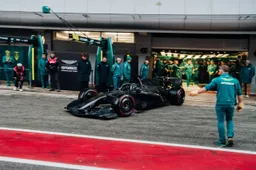
4
Newey's 'sexy' car design continues to turn heads in the F1 paddock
872 times read
Loading

